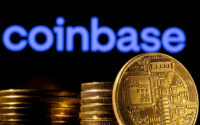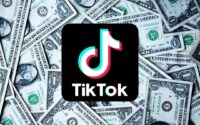TikTok Goes American: What the $14B Deal Means for You
The TikTok Deal: U.S. Acquisition Finalized, What It Means for Users and the Future of the App
On September 25, 2025, a landmark deal was finalized that reshapes the future of TikTok in the United States. Rather than an outright purchase by the U.S. government—as some rumors suggested—TikTok’s U.S. operations have been acquired by a consortium of American investors. The agreement ensures the app’s continued operation while addressing national security concerns tied to its Chinese parent company, ByteDance.
This article breaks down the details of the deal, its impact on TikTok’s 170 million U.S. users, and what the future might look like for one of the world’s most influential apps.
The Deal: A New American TikTok
The agreement, approved by President Donald Trump via executive order, resolves a years-long standoff over fears of Chinese government influence and data security risks.
Key Highlights of the Deal:
- Ownership Shift: 80% of TikTok’s U.S. operations will be owned by American investors. ByteDance and other Chinese stakeholders will retain less than 20%. Oracle will lead the group, joined by Silver Lake, Andreessen Horowitz, Susquehanna International Group, and KKR.
- Valuation and Timeline: TikTok’s U.S. assets are valued at about $14 billion, far below earlier estimates of $30–40 billion since the algorithm itself was excluded. The previous ban deadline of September 17, 2025, was extended to December 16, 2025, with full enforcement delayed until January 20, 2026.
- Governance: A new U.S.-based company will operate TikTok, with six of seven board members being American—including one government-appointed seat.
- Data and Algorithm: TikTok’s recommendation algorithm will be licensed from ByteDance but controlled independently. U.S. users will shift to an American-hosted app by 2026.
- Government Fee: The U.S. government will receive a fee worth several billion dollars, defended by the administration as compensation but criticized by opponents as a “shakedown.”
The deal follows a 2024 law requiring ByteDance to divest TikTok’s U.S. business or face a nationwide ban.
What Changes for Users?
For everyday users, the app will continue to run normally for now. But several shifts are expected in the months ahead:
1. Data Privacy and Security
Oracle will oversee U.S. data storage, moving user information onto American servers subject to U.S. privacy laws. While this limits foreign access, TikTok’s core data collection practices remain unchanged—meaning privacy debates are far from over.
2. Content Moderation and Algorithm
TikTok’s beloved algorithm will remain intact under license. However, U.S.-based moderation could lead to stricter rules around political, cultural, or sensitive content. Critics warn this could fuel new debates about censorship and bias.
3. User Transition to a U.S. App
By early 2026, American users will migrate to a U.S.-controlled version of TikTok. Accounts, followers, and videos will carry over, though some international content may be restricted if the U.S. app operates more independently from the global version.
4. Advertising and Monetization
With ownership concerns eased, advertisers wary of data risks may now lean more heavily into TikTok. At the same time, higher operational costs could push the company toward new monetization strategies such as subscriptions or premium features.
The Bigger Picture: Long-Term Shifts
Beyond technical changes, the deal carries major cultural, political, and global implications:
- Cultural & Political Role: TikTok has been central to activism, political discourse, and cultural trends. With U.S. oversight, content rules may tighten, raising questions about freedom of expression.
- Innovation & Competition: Without direct ByteDance involvement, TikTok’s ability to innovate may slow. Rivals like Instagram Reels and YouTube Shorts could capitalize on this transition.
- Global Precedent: This sets a model for how governments may demand local ownership of foreign tech platforms, potentially fragmenting global social media.
- User Trust: The deal is designed to restore trust, but execution will be critical. Data mishaps or heavy-handed moderation could damage credibility.
Cutting Through Misinformation
Some online rumors falsely claimed that Israel “bought” TikTok, sparked by political comments. In reality, the buyers are the U.S.-led investor group listed above, with no foreign government involvement. This underscores TikTok’s political sensitivity and the ease with which misinformation spreads on the very platform at issue.
The U.S. acquisition of TikTok represents both a victory for national security advocates and a test for the app’s cultural resilience. Users can still scroll, create, and share as usual—but a new, American-run TikTok is on the horizon.
Whether this shift strengthens TikTok’s future or undermines its global magic will depend on how smoothly the transition is managed, how transparent its practices become, and how much trust it earns from its massive user base.
For now, TikTok remains the same—but its next chapter will be written in the U.S.
Sources: Executive Order, September 25, 2025; U.S.-China negotiations; Oracle-led investor group announcements; U.S. divestiture law (2024); investor details; infrastructure transition plans; government fee reports; fact-checks on ownership rumors.


